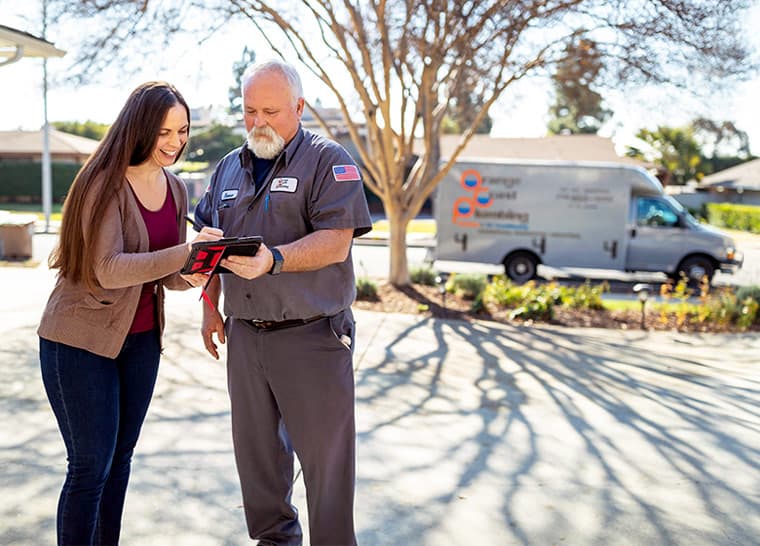You enter your home after a long day at work and are greeted by foul and damp air.
PU! What’s going on?
Did the kids get into something? Did the dog eat something that upset his digestive system?
Possibly, but a more likely culprit is bad plumbing. When was the last time you had your plumbing checked or maintained?
Indoor Air Quality Is Often Overlooked
“Air pollution” evokes images of smog-filled skies and gray industrial emissions — in other words, New Delhi, India.
However, indoor pollution can be just as harmful, if not more so. Poor indoor air quality can reduce one’s life expectancy by five years!
According to various studies, including research by the US Environmental Protection Agency (EPA), the average American spends up to 90% of their time indoors. This time is divided between homes, workplaces, schools, and other indoor environments.
You can’t do about workplace air quality, but your home is your fiefdom, and it hosts a multitude of pollutants, including:
- Dust mites
- Pet dander
- Mold and mildew
- Bacteria
- Volatile organic compounds (VOCs) from household cleaners
- Carbon monoxide and other gases
- Radon, a naturally occurring radioactive gas
Try as you might, you can’t eradicate all air pollutants, but you can lower them to tolerable levels.
Health Implications of Poor Indoor Air Quality
The effects of indoor pollutants include:
- Eyes, nose, and throat irritation
- Headaches
- Dizziness
- Fatigue
- Respiratory problems like coughing and wheezing
- Allergic reactions, including asthma attacks
Long-term exposure can lead to serious health complications, including respiratory diseases, heart disease, and even cancer.
One common source of hidden indoor air pollution is bad plumbing.
The Plumbing-Air Quality Connection
Plumbing systems bring clean water into your home and remove wastewater. Their pipes, fittings, valves, and fixtures must be maintained to function as designed.
Common plumbing problems include:
- Leaks
- Clogs
- Corroded or old pipes
- Improperly installed pipes
- Unmaintained fixtures
How These Issues Introduce Contaminants
- Leaky pipes create ideal conditions for mold and mildew growth. The damp environment also attracts dust mites.
- Clogs can cause wastewater backups. This stagnant water emits unpleasant odors and harbors bacteria.
- Corroded or old pipes may leach hazardous materials like lead into drinking water.
- Improperly installed pipes can allow sewer gases to enter your home.
- Unmaintained fixtures can harbor bacteria and other contaminants that spread through the air.
What You Can Do About It
- Schedule regular professional inspections.
- Use water sensors to detect leaks early.
- Ensure proper ventilation in moisture-prone areas.
- Replace old or corroded pipes with modern, safe alternatives
- Fix any issues promptly to prevent further damage.
- Properly maintain fixtures and plumbing appliances.
- Avoid harsh chemicals in your drains; they can corrode pipes and release harmful fumes.
Bonus Tips for Maintaining Indoor Air Quality
- Investing in a high-quality air purifier to significantly reduce airborne pollutants like dust, allergens, and VOCs.
- Clean surfaces, upholstery, and carpets to eliminate dust and dander and reduce the likelihood of mold growth in damp areas.
- Incorporate houseplants in your decor. Certain houseplants, such as spider plants, peace lilies, and snake plants, have exceptional air-filtering properties.
- Maintain optimal indoor humidity levels (between 30% and 50%) to thwart mold growth and dust mite proliferation. Use dehumidifiers in damp areas like basements and bathrooms.
- Implement a no-shoe policy indoors to reduce the pollutants tracked into your home.
FAQs: Bad Plumbing & Air Quality
Q: How often should I check my plumbing?
Inspect your plumbing system at least once a year. However, if you notice signs of trouble, don’t wait — call a professional immediately.
Q: Can I handle plumbing maintenance myself?
Minor tasks like unclogging a drain or fixing a leaky faucet can be DIY projects. Professionals should handle more complex issues.
Q: What should I do if I find mold in my home?
Mold remediation can be a complicated process. Consult a professional to assess the extent of the problem and recommend a course of action.
Q: What are the signs of bad plumbing that could affect air quality?
Look for unexplained dampness, mold growth, persistent unpleasant odors, or discolored water. These indicators can signal plumbing issues that may compromise indoor air quality.
Q: Can poor ventilation contribute to plumbing-related air quality issues?
Inadequate ventilation can exacerbate problems caused by plumbing issues. Proper airflow helps dissipate moisture and odors and deters the proliferation of mold and bacteria.
Q: How can I improve air quality while dealing with plumbing issues?
Ensure proper ventilation, use dehumidifiers, and invest in air purifiers. Address plumbing problems promptly to prevent contaminants from spreading.
Q: Are certain plumbing materials safer for air quality?
PEX or PVC are safer than older metal pipes, which can leach contaminants into the water supply and affect air quality.
Q: What should I do if I suspect a sewer gas leak in my home?
Evacuate the area immediately and contact a licensed plumber. Sewer gas is hazardous.
Q: Can household cleaners impact indoor air quality?
Many household cleaners release volatile organic compounds (VOCs) that can pollute the air. Using eco-friendly cleaning products can mitigate this risk.
Q: How do I know if my air quality improves after plumbing repairs?
An indoor air quality monitor can measure pollutants like dust, VOCs, and humidity levels and assess whether conditions improve.


